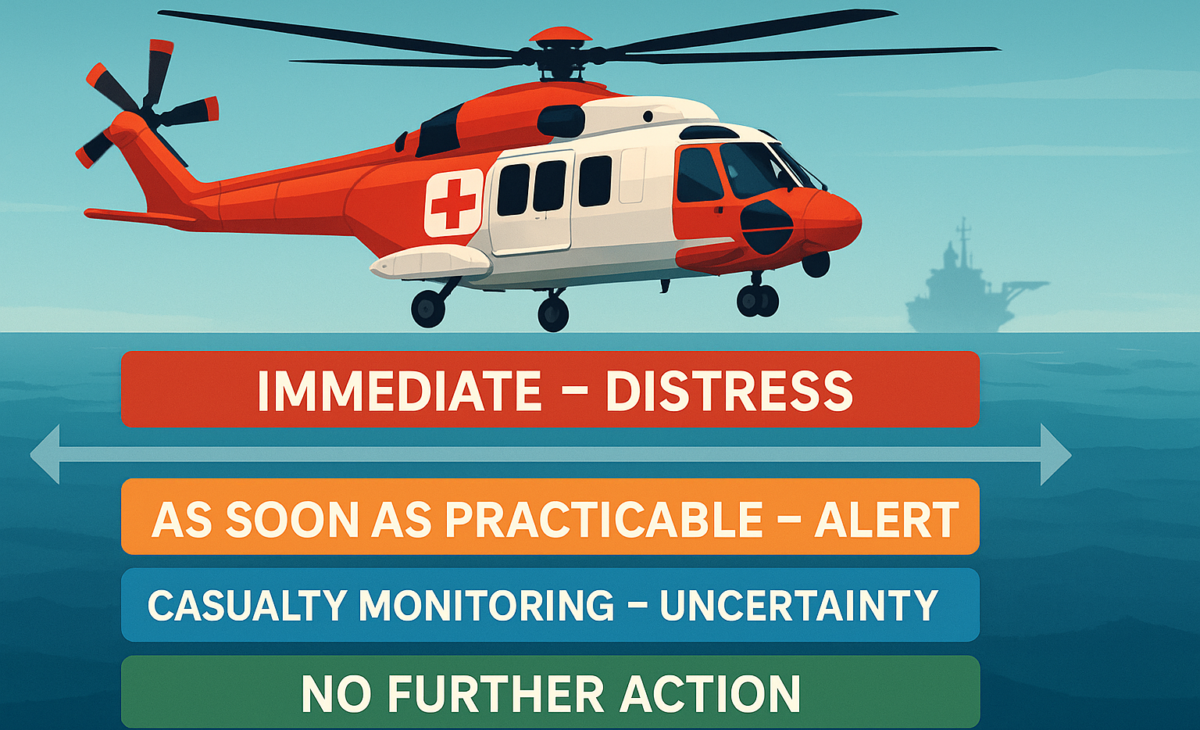Following a comprehensive review led by the HM Coastguard Clinical Governance Team in collaboration with the HMCG Operational Procedures Team and other key partners, there is now an important update to the medical evacuation (medevac) timescales.
Why the Change?
This update stems from lessons learned through incident reviews and feedback, which highlighted that the previous timescales required editing and further clarification. The revised timescales aim to provide clearer guidance, reduce misclassification of incidents, and ensure patients receive the most appropriate level of care.
What’s Changing?
The new framework introduces four clearly defined categories:
- Immediate – Distress: For life-threatening conditions requiring urgent response.
- As Soon As Practicable – Alert: For serious but not immediately life-threatening cases, with agreed timeframes (e.g. 4, 6, 12, or 24 hours) to the nearest hospital or specialist centre if required. Four hours now included to align with ambulance timescales and to provide a quicker response than 6 hours.
- Casualty Monitoring – Uncertainty: For stable cases requiring observation.
- No Further Action: For resolved cases or where no evacuation is needed.
These changes align more closely with IAMSAR emergency phases and provide clearer expectations for coordination with doctors and rescue assets.
Next Steps
- Organisations should familiarise themselves with these changes, though it is anticipated that this will be most relevant for offshore medics, topside doctors and HM Coastguard.
- These changes will be updated in due course within the Integrated Offshore Emergency Response document and TMF timescale guidance, including additional supporting information.


